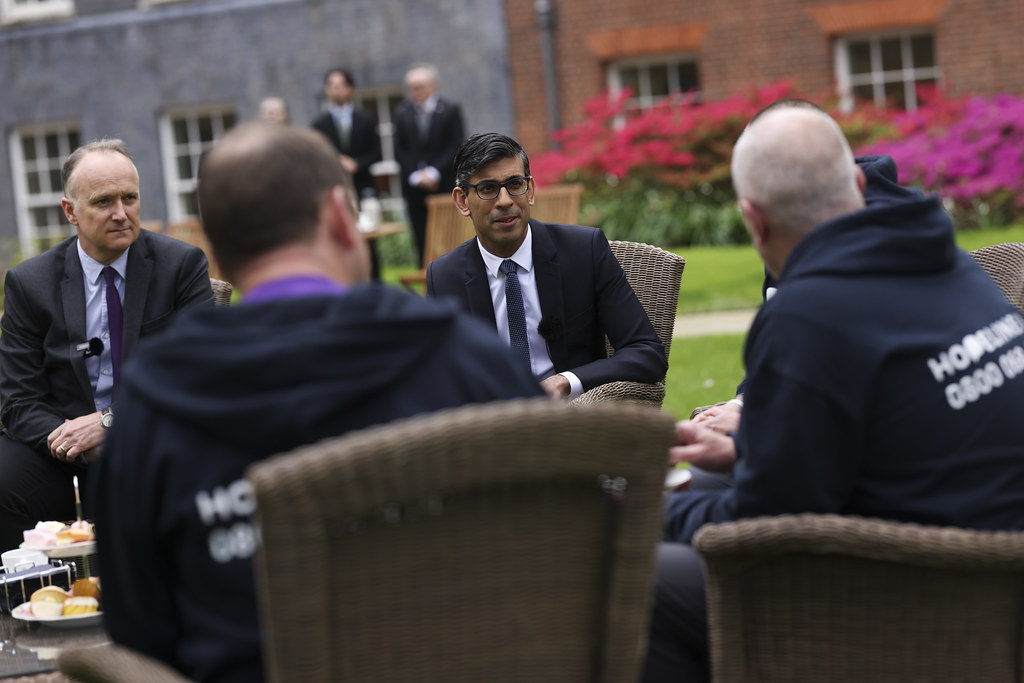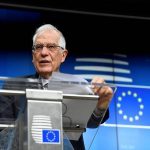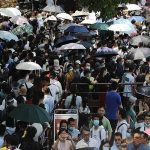The security service advised the Tory Party in 2021 and 2022 that the two would-be MPs should not be included on its central list of candidates…reports Asian Lite News
The Conservatives are understood to have dropped two potential candidates to become MPs after MI5 warned that they could be Chinese spies.
It comes as a former national security said that the China spy scandal is a “wake-up call” for wider British society. Ministers continue to face questions about allegations of espionage in Westminster after the arrest of a parliamentary researcher on suspicion of spying for Beijing.
The security service advised the Tory Party in 2021 and 2022 that the two would-be MPs should not be included on its central list of candidates, according to The Times.
The Independent cited an unnamed source as saying: “It was made very clear that they posed a risk. They were subsequently blocked from the candidates list. They weren’t told why.”
A Conservative Party spokesman said: “When we receive credible information regarding security concerns over potential candidates we act upon them.”
The two Tories – who had made it onto CCHQ’s central list of candidates – allegedly had links to the United Front Work Department, the part of the Chinese Communist Party which aims to exert influence in other countries.
Tory minister Maria Caulfield said the party took “swift action” to drop two potential candidates. “They were removed from the list. They are not standing for election. Any intelligence that comes forward, it just shows that we will take that very seriously; the same with the researcher in parliament,” she told Times Radio.
There are fears of a potential network of Chinese operatives in Westminster, after the arrest of the parliamentary researcher. The revelation prompted Rishi Sunak to confront the Chinese premier Li Qiang at the recent G20 summit over “unacceptable” interference.
Sunak was told of the arrest of the Tory researcher suspected of spying for Beijing back in March, according to the Financial Times, but continued to pursue a policy of engagement and refused to designate China a “threat”.
Lord Ricketts, the former national security adviser, urged organisations including universities, businesses and think tanks to exercise “transparency and vigilance”, saying those were the “best defences” against foreign infiltration.
But Lord Ricketts warned it was “not just politicians” who should be on their guard against countries like China and Russia.
Lord Ricketts said, “It is not just politicians, because I think the kind of influencing operation, to get inside the British system – both to feed in arguments but also to harvest information – that’s probably going on in other places, not just in parliament. It’s probably going on obviously in academia, in universities and think tanks. If you take a broad-gauge approach to trying to penetrate and possibly subvert democracy in the UK and other Western countries, then you would regard all those sorts of areas of public life as of interest… I think it is all areas of political life.”
Lord Ricketts said it included places that had access to information that was not classified but was “sensitive” or where there was “privileged access to the way people are thinking and talking about China” and Russia.
It also included businesses with “intellectual property of interest to China”, he added. “I think it has long been clear that they are on the lookout to help themselves to commercial secrets,” he said.
The problem had been highlighted in a number of reports, including by parliament’s Intelligence and Security Committee (ISC), he said.
But Lord Ricketts said the message “somehow hadn’t quite come home” and that the spy row has “acted as a wake-up call”.
“Whereas people might not have asked questions about someone, say, who seemed to have a lot of money to help them promote the causes that they were promoting… now I think there is going to be more transparency, there is going to be more vigilance about it, which is a good thing,” he said.
When it comes to tackling the problem, “people need to pay attention”, he said. “And if you’re giving someone access to activities that are not classified, but still sensitive… then you probably do need to do some due diligence on their background.”
But he warned against going too far and having a culture “where everybody is suspected”.
“I think people just need to be aware and to be ready to ask themselves questions. There’s no magic solution. Spies have been a fact of life for centuries… but transparency and vigilance and awareness, I think are the best defences,” he said.
The Briton was arrested along with another man by officers on 13 March on suspicion of spying for Beijing. One of the men, in his thirties, was detained in Oxfordshire, while the other, in his twenties, was arrested in Edinburgh, Scotland Yard said.
The researcher at the centre of the row had links with senior Tories, including security minister Tom Tugendhat and foreign affairs committee chair Alicia Kearns. In a statement through his lawyers, he has insisted he is innocent.
ALSO READ-Sunak to meet Biden in Northern Ireland














